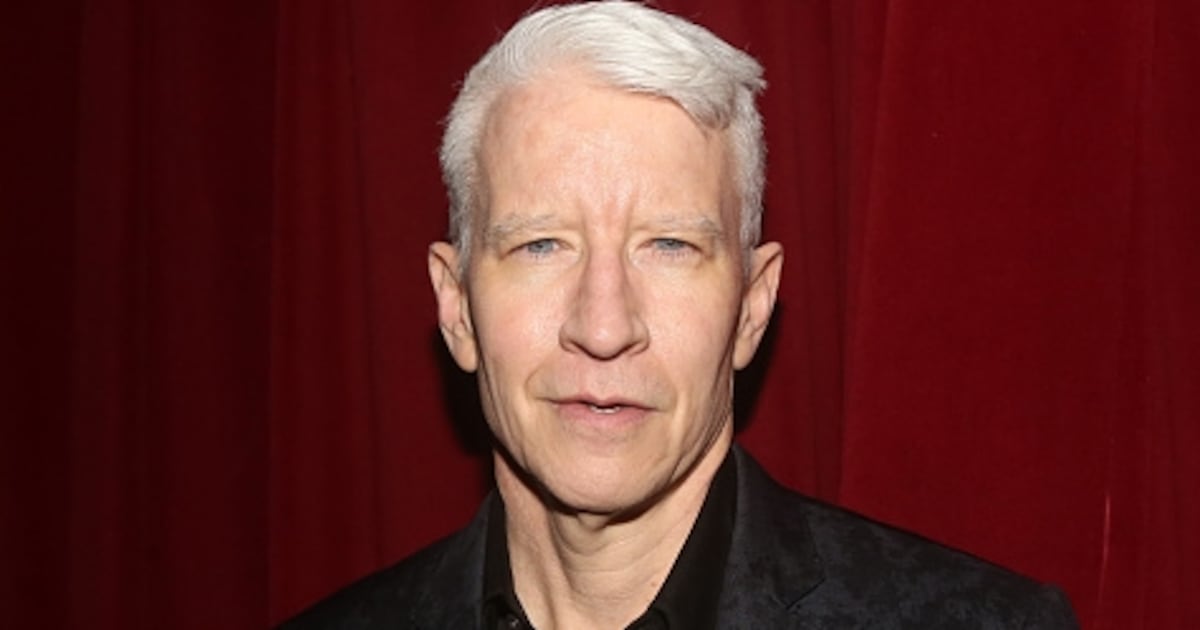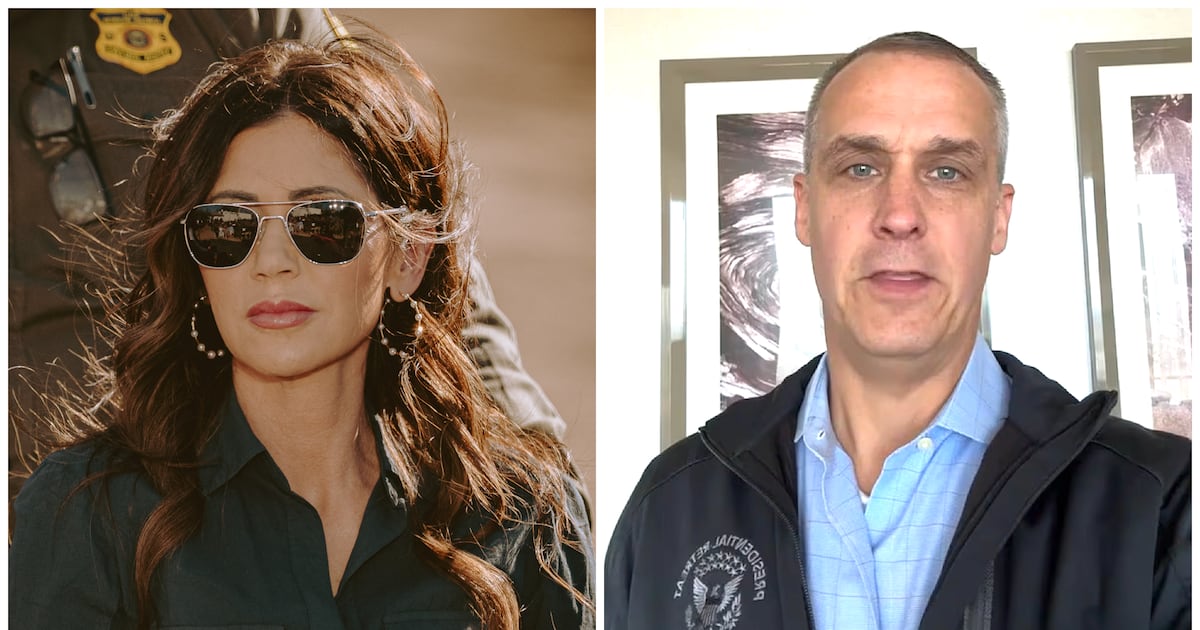It’s 11:15 on election night 2012, and things are looking grim for team Romney. The family of seven, along with several campaign aides, is huddled together in a cramped hotel suite. There’s Ann Romney, tears welling in her eyes, along with the family’s five strapping sons. In the center of the room is Mitt Romney. The Republican candidate for President of the United States is casually lounging on a cheap beige couch.

“It seems awfully early to call it … 69 percent?” he asks, followed by a nervous chuckle. “By the way, does somebody have a number for the president?” An aide assures Romney that they do. “OK, good. Hadn’t thought about that!” More awkward chuckling. “So … what do you think you say in a concession speech?” he says, scanning the room. Dead silence. The camera homes in on the face of Romney’s eldest son, Tagg, who looks like he’s been hit by a Mack truck. Romney, himself, looks stunned. His right hand is shaking uncontrollably.
The documentary Mitt, which will debut at the 2014 Sundance Film Festival, follows Romney’s two failed presidential runs, beginning in Christmas 2006 through to his Presidential concession speech in 2012. Filmmaker Greg Whiteley (New York Doll) was granted unprecedented access to the Romney camp, trailing the ex-governor of Massachusetts for six years and capturing many private, behind-the-scenes moments with political advisers and family members.
After the election night letdown the film jumps back to Christmas 2006. The Romney family members are seated on couches inside their ritzy winter vacation home, where their father is polling the kids on the pros and cons of a potential presidential run.
“It would be a shame not to at least try,” says a teary-eyed Tagg. “And if you don’t win? We’ll still love you. The country may think of you as a laughingstock, and we’ll know the truth. And that’s okay. But I think you have a duty to your country—and to God—to see what comes of it.”
The action cuts to a Los Angeles fundraiser where Romney, now a potential Republican nominee for president, is holding court.
“I have looked, by the way, at anybody in this country who loses as the nominee of their party, who loses the general election,” he says to the crowd. “They become a loser for life, all right? It’s over. Mike Dukakis, you know, he can’t get a job mowing lawns!”
We’re then taken behind the scenes of his 2008 run for president. Romney jokes with a cameraman about never having seen his favorite movie, O Brother, Where Art Thou? He seems preoccupied with the would-be Democratic nominee for president, Barack Obama, prior to the 2008 New Hampshire primary, saying, “Barack Obama has changed our race … has changed our prospects.” His family members don’t seem too thrilled with it all. “This is so awful,” says his son, Josh. “It’s so hard. They talk and they say, ‘Why can’t we get someone good to run for president?’ And this is why!” “We cannot do this again,” adds Romney’s other son, Matt. “You can only squeeze the blood out of a rock one time.” His wife, Ann, weeps as she leads the family in a prayer. “These aren’t tears of sorrow,” she says. “These are tears of gratitude.”
And Romney is doing so well. He’s being chewed up and spit out by his rival, John McCain (R-Az.), who brands him a flip-flopper ad nauseum. After several lackluster primary debates, he’s mad as hell but doesn’t quite know how to stop it.
“There’s nothing I can do!” he exclaims, of the flip-flopping allegations. “I keep hearing, for instance: ‘You changed your position on gay marriage.’ NO I HAVEN’T! But they keep saying it! Is there not some way of saying, ‘Stop buying the dog food that’s been shipped to you from McCain?’” He pauses. “I gotta live with that, ‘Oh, you flip on everything!’ In which case, I think I’m a flawed candidate.”
After McCain takes the Florida primary, Romney gathers his troops in a hotel room to commiserate. His presidential hopes are dashed, and he knows it. “Six months ago, we laughed at John McCain,” says Romney. “Laughed. And now, he’s most likely the nominee. He ran a smart campaign. He beat us. No one sends a check in. You have to be asked at fundraisers, and it’s just … who’s gonna want to come to a big event for me? I don’t even want to go to events! Let me tell you how I’m going to win this! It’s like oh, gosh. I can’t fake it.” Romney puts his hand over his face and gently weeps.
The first 35 minutes of Mitt center on Romney’s first failed run, and move along pretty slowly. While there are some intimate moments, they all paint the candidate as an easy-going family man who’s too kind-hearted for the nasty political arena. All the “intimate” moments, however, seem to back up this assertion. There are no implosions. Romney never really loses his cool (which is very hard to believe). Heck, we don’t even see him yell or curse. This hagiographic approach continues throughout the rest of the film.
Things jump ahead once more to Romney accepting the Republican nomination for president in Tampa. Then, the infamous “47 percent” video hits, and we cut to Romney slumped in a chair, holding his head in his hands. It’s strange that this momentous event is almost entirely glossed over. We never hear Romney’s thoughts on the video, just that image of a broken man.
Romney, of course, crushes Obama in the first of three televised presidential debates. Afterwards, he reveals his notes from the debate, which consist of a bunch of scribbles, a picture of a sun, and the word “DAD” in big letters. “I’m standing on his shoulders,” he says of former Michigan governor George Romney. “There’s no way I’d be able to run for president if Dad didn’t do what Dad did.”
The second debate, moderated by CNN’s Candy Crowley, doesn’t go so well.
“It was not good,” says Josh Romney, right afterwards. “That question he got wrong, about what [Obama] said in the rose garden … who briefed him on that? Someone got it wrong.” When Romney enters the green room, his family applauds him. “Good job,” they all say. The candidate gives them serious side-eye, and begins pacing nervously around the room. He shakes his head. He looks shell-shocked. Later, he’s seated with his family in a hotel suite and complains about Crowley interrupting him when he asked Obama about China, as well as the whole rose garden snafu. “I asked him whether he called the [Benghazi] attack ‘a terrorist attack,’” says Romney. “That’s both technically right, and in-the-spirit right. Both.” He adds, “It threw me off. This is like the SAT when there’s three questions in a row you don’t know the answer to, and you think, ‘Oh no, I’m gonna flunk it. My life is over.’ It was like that.”
In the blink of an eye, it’s Nov. 7, 2012. Election Day. We’re back to the opening scene, with Romney and his family stuffed into a tiny hotel suite. The Republican candidate receives a disturbing call. He’s just lost Wisconsin, Michigan, and Nevada, and Ohio looks like a pipe dream. The election is effectively over. Romney ponders what to say in his concession speech, and one of his aides pipes up, suggesting that he give a speech that will “soothe” his acolytes.
“To get up and soothe is not my inclination,” says a defiant Romney. “I cannot believe that [Obama’s] an aberration of the country. I believe we’re following the same path of every other great nation, which is we’re following greater government, tax the rich people, promise more subsidies for everybody, borrow until you go over a cliff. I think we have a very high risk of reaching the tipping point sometime within the next five years. And the idea of saying, ‘Hey, it’s fine, don’t worry about it,’ well, it’s really not.”
For all the access granted to Whiteley and his filmmaking team, Mitt doesn’t contain too many illuminating scenes. We never really see Romney criticizing anyone—even Candy Crowley—nor do we see his reaction to many game-changing incidents during his campaign (e.g. the “47 percent” video). He doesn’t even utter the name “Sarah Palin” in the film. We also don’t see Romney discuss any hot button issues, from gay marriage and abortion to the repeal of Obamacare and Dodd-Frank Wall Street reform, nor do we see him address his numerous contradictions. Willard—and his “binders full of women”—alas, remains a mystery.






